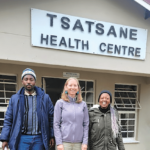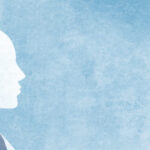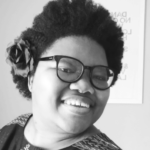Rethabile Mathealira-Molapo
In Lesotho, the conversation around mental health is gaining traction. More people are speaking about stress, anxiety, trauma, and depression, not just as private struggles, but as public health concerns that impact our families, schools, workplaces, and communities. This growing awareness is a welcome shift after years of silence. But there’s still a critical piece missing in the national conversation. We are talking about mental health. We are talking about mental health challenges. But we are not talking enough, clearly or boldly, about mental illness as a disability.
This omission is not just a language gap. It is a gap that leaves people unsupported, invisible in key decisions which should include them, excluded from services, and denied their rights. In many cases, it is a gap that costs lives. It is time for Lesotho to recognise that chronic mental health conditions are not just temporary struggles. For many, they are long-term disabilities that affect their daily functioning, limit opportunities, and require transformed spaces for equal participation, just like any other form of disability.
Mental illness not only disables, but often interacts cyclically with poverty. People living in poverty are more exposed to chronic stress, violence, trauma, and deprivation, all of which increase the risk of mental illness. At the same time, when mental illness goes unsupported or not provided for, it pushes people out of learning, limits access to economic opportunities, and deepens poverty. Addressing mental illness as a disability is, therefore, not just a health issue; it is a human rights issue and a critical intervention for breaking cycles of economic exclusion.
Some may think that calling mental illness a disability is going too far, but according to international human rights frameworks, it is not going far enough. The United Nations Convention on the Rights of Persons with Disabilities (CRPD) defines disability as including people with long-term physical, mental, intellectual or sensory impairments that, in interaction with social barriers, prevent full and equal participation in society. Mental health conditions, when persistent, fit this definition. Conditions like schizophrenia, bipolar disorder, post-traumatic stress disorder (PTSD), and chronic depression can significantly impair memory, focus, sleep, energy, emotional regulation, and the ability to study, work, or maintain relationships.
Globally, these are recognised as psychosocial disabilities. But in Lesotho, people living with these conditions are still missing from disability policies, programming, and advocacy, and this aspect of their conditions is still missing from the mental health discourse. This is not because their needs are less valid; it is because both our definition of disability and considerations in mental health conversations remain too narrow.
Disability is not always visible. But invisibility does not equal absence. Imagine a student with bipolar disorder who cannot concentrate during hypomanic states. A worker with chronic anxiety who cannot handle live crowds. A mother with schizophrenia who cannot access employment because of stigma and misinformation. These individuals are not just dealing with “mood swings” or “a bad day.” They are navigating real and persistent impairments in a world that often does not make room for them. And it is not just the illness itself that disables, it is also the discrimination, the lack of flexibility, the forced dropouts, and the missed opportunities that result from inflexible systems. This is why mental health conditions must be included in Lesotho’s disability discourse, and the disability aspects of these conditions in the mental health conversation, not as afterthoughts, but as core components.
To be truly inclusive, mental health frameworks on one hand and those of disability on the other must make space for access for people with psychosocial disabilities, just as they do for people with physical or sensory impairments. At home, this means challenging harmful beliefs that equate mental illness with laziness or weakness. It means offering support, not condemnation.
In schools, it means ensuring students with mental illness can access counselling, flexible deadlines, and teaching methods that support cognitive and emotional needs. Too often, the lack of such support pushes students out of the classroom and permanently derails their education.
In the workplace, it means creating psychologically safe environments through flexible hours, remote or hybrid working, quiet workspaces, supportive HR policies, and anti-discrimination protections. Without these, many are forced to exit the workforce altogether, deepening financial instability.
In churches and communities, it means offering spiritual support that acknowledges suffering without blaming it on a lack of faith or not wanting to be part of the community.
This is what true disability inclusion requires: systems, policies, and cultural attitudes that allow all people, including those with psychosocial disabilities, to participate fully and with dignity. And while many mental health conditions are long-term, others may be temporary but still seriously disabling during an episode. People with temporary mental illness also deserve compassion and access. Disability inclusion must recognise that the need for support can be episodic, and protections should not depend on how permanent a diagnosis is, but on how it affects a person’s life and functioning.
One of the most urgent gaps in Lesotho’s mental health and disability work is the exclusion of people with lived experience from decision-making processes. Too often, decisions are made about people with mental illnesses without involving them directly. Due to unwarranted paternalism and false beliefs that they cannot articulate themselves, their voices are discounted from policy rooms, advisory committees, and service design, even though they know best what they need. This must change. Inclusion means more than being spoken about. It means being heard, respected, and positioned as experts in one’s own experience. It means leadership roles, not just client roles. It means co-creation, not paternalism.
Recognising mental illness as a disability is not just a health issue; it is a human rights issue. And it requires coordinated action across multiple sectors: Institutions of learning must protect the right to inclusive education for learners with psychosocial disabilities. Workplaces must ensure that employment polices protect workers with mental illness from discrimination and make workplace culture and workday structures accessible for all. The health sector must expand community-based mental health care to provide psychosocial support. Faith-based institutions must reduce stigma and offer spiritual support that does not shame or silence. Local communities must create environments of care, dignity, and support for all.
Inclusion begins with each of us. This is how you can be part of the change: Educate yourself about mental illness and disability rights. Listen to people with lived experience when they name their needs. Challenge stigma wherever you encounter it, in your home, workplace, school, or church. Advocate for policies that recognise and protect the rights of people with psychosocial disabilities. Support organisations led by or working alongside people with mental illness.
It’s time to widen our understanding of disability. Mental illness, when chronic, can and does disable. And yet, many people living with these conditions are left without the protections and supports they need. This is not just a gap in services; it is a justice gap. We need to rewrite the narrative. We need to name what has been unnamed. We need to bring those who have been pushed to the margins towards the centre. We need to make space, policy-wise, system-wise, and heart-wise, for the person living with mental illness.
Summary
- And it is not just the illness itself that disables, it is also the discrimination, the lack of flexibility, the forced dropouts, and the missed opportunities that result from inflexible systems.
- This is why mental health conditions must be included in Lesotho’s disability discourse, and the disability aspects of these conditions in the mental health conversation, not as afterthoughts, but as core components.
- To be truly inclusive, mental health frameworks on one hand and those of disability on the other must make space for access for people with psychosocial disabilities, just as they do for people with physical or sensory impairments.

Your Trusted Source for News and Insights in Lesotho!
At Newsday Media, we are passionate about delivering accurate, timely, and engaging news and multimedia content to our diverse audience. Founded with the vision of revolutionizing the media landscape in Lesotho, we have grown into a leading hybrid media company that blends traditional journalism with innovative digital platforms.










